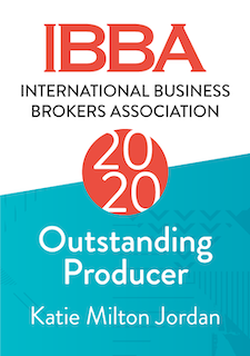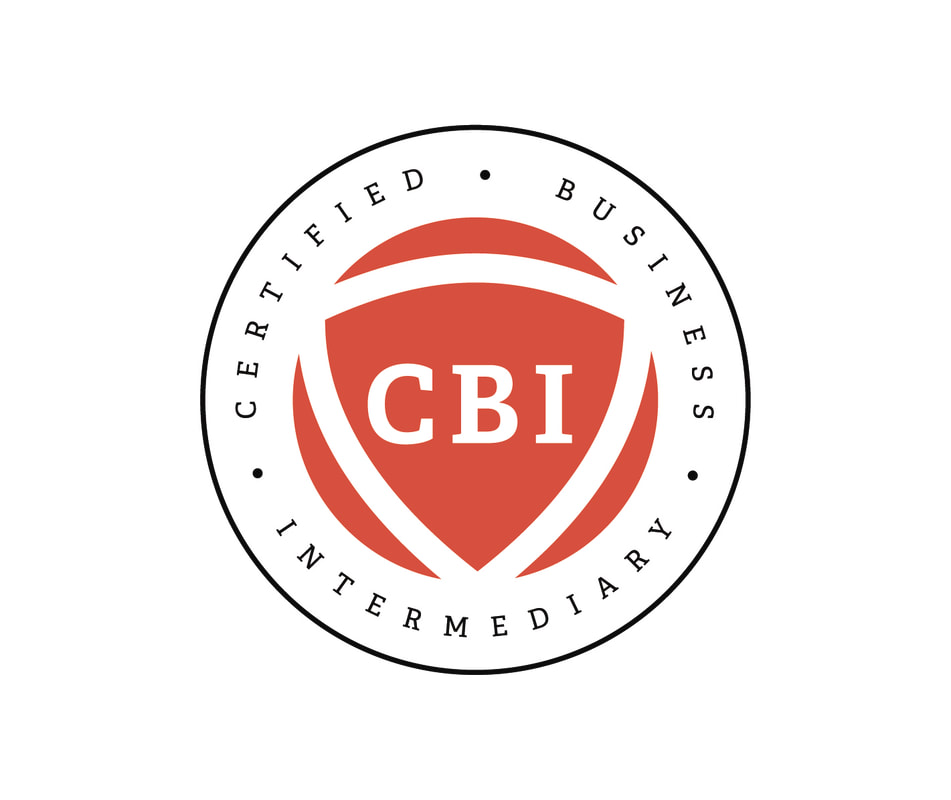|
With a background as a broker, life coach, and fourth generation entrepreneur, it's safe to say that I have learned a few things over the years about how to grow a business as an asset that might later be sold. I like to say that I'm a coach by trade and an entrepreneur by heart. I have owns and operated several businesses over the course of my career -- some were successful, some not. Selling your business may seem like a far off possibility, but one thing is for sure: for a business to sell to a good buyer, it needs to have meticulous systems from the get go. I have compiled a list of do's and don'ts that ever successful business should follow, especially if there is even the tiniest possibility of a change in ownership sometime in the future. 1. Don't Hide Cash.
While this isn't always illegal, it is technically considered hiding money from the IRS. So, while yes, you may be reducing your taxably income and saving money, you're actually hurting your business in the long run, especially if you plan to sell later on. From a broker's perspective, we can't get a buyer to pay for your business in an amount that you can't prove on paper. Most companies sell for a multiple of EBITDA or Discretionary earnings, so hiding cash now could cost you thousands of dollars in business value when you're eventually ready to sell. You're stepping over dollars to save dimes. Action Step: work with a knowledgeable CPA who understands that you are building an asset you may want to sell one day, so they can help you find legal tax strategies that won't compromise your business value. 2. Keep Your Books Clean A lot of companies don't have a professional bookkeeper and are just entering their data into an Excel spreadsheet. While this may seem effective for recoding your intake and output, it won't prove to be an efficient system later on, when you're generating a larger revenue. You need an organized system that can keep up with your growing company. The challenge here is that if your books are all over the place when a prospective buyer comes in, you'll have a hard time proving the profitability of your company and the pricing credibility. You don't want any reason for buyer prospects to distrust you. Action step: make sure your books are clean, accurate, and professional. Don't wait until you can't keep up with your records. Get into tracking your expenses and profit right now. If you're in Texas and would like an introduction to a knowledgeable and reputable bookkeeper or CPA, please reach out! I'd love to connect you with someone fantastic. 3. Have Manuals and Checklists in Place A lot of business owners try to do everything for themselves. This isn't necessarily a fault or a flaw in your system, but it can be a hindrance to your company as your grow and scale. It may even precent you from growing past a certain point. If you're planning on selling later, put together manuals, checklists, and SOPs of the day-to-day and overall operations of your business. This will allow the buyer to step into the role of owner in an effective way. Handing over these checklists can actually increase the value of your business, because they give the new owner the ability to run your business as a turnkey operation. Action step: Automate and delegate tasks that aren't in your zone of genius. Begin documenting all the details of your business that the next owner will need to know in order for the transition to happen smoothly. 4. Track Your Customer Satisfaction This should be at the top of your priority list. There are plenty of other things you may thin are more important in the day-to-day operations, but tracking your customer satisfaction can be instrumental in the progress of your company. From the buyer's perspective, having this data allows them to know if there is value in your company beyond what you tell them. Not only does this increase the value of your company, but it also helps you by showing what you're doing right in the business and if you're serving your customers in the best possible way. Action step: You can set up a Net Promoter Score, which is a simple way to track your customer satisfaction. These are pretty common, and you may have even filled one out yourself. It's a scale of 1-10 used to see how satisfied people are with the company's products or services. Below an 8 is a detractor and will let you know where improvements need to be made. 5. Do Invest in Technology In today's business world. most websites serve as the first impression. Your website must have curb appeal and make a positive impression. Consider the young professionals in business now, who are coming up the ranks and will be looking to buy businesses in the future. As you're building your business now, think of what they will be looking for in the future. Social media is a big factor in marketing and will continue to evolve over time. Don't let this overwhelm or discourage you if you're not interested in learning this form of marketing. It's critically important to invest in software that allows your business to run more efficiently, such as a CRM (client relationship management), or industry specific technology. Action step: Consider what potential buyers will be interested in, based on the line of business you're in. Get familiar with social media and determine which platforms will serve your audience best. Set yourself up for success with software that supports your operations and ensure that your website is optimized for best results. 6. Maintain Your Independence Don't rely on one big fish client, one great vendor, or one stay employee (which includes yourself)! Small business owners sometimes overlook the fact that they are concentration issues in one specific part of their business and are thereby risking their business's value down the line. In many cases, small businesses can be closely tied to the owner. What happens when the owner wants to take a vacation? Will the company lose business or struggle while they're gone? This is the same concept if you're planning to sell. If your business is named after you, or it relies on you too much personally, you could be putting your value in jeopardy. Your business needs to be able to run without you being there, or without having that one big client. Action step: Concentrate on the value you provide, rather than on the little details that make up your business. Ensure smooth operations, but also delegate tasks and maintain a steady flow of revenue from more than one source. 7. Take a Vacation And turn your phone off while you're at it. It is crucial for the health of your business that it can run without you. Test this by taking a vacation, If you're a business owner who does all the things, you probably haven't mastered the art of delegation. Or maybe you just don't like the release of control. Go off the grid for two weeks. This will let you know what areas and systems are weak in your business. You'll see who steps up into a leadership role and will be able to determine what policies need to be firmed up. A lot of times revenue actually increases when business owners do this. Your ROI will potentially increase if you take the chance to find out where your business needs you or where it can operate without you. Action step: Take a vacation. If it worries you too much to leave the country and turn your phone off, just go across the county line and have a staycation. That way, if things unravel and you need to get back quickly, you're just a drive away, 8. Create Recurring Revenue Not all revenue is created equal. Recurring is better for buyers because it's easier and less expensive to sell to an existing customer than it is trying to convert new ones. Pro tip: The Automatic Customer by John Warrillow outlines 9 different ways you can create recurring revenue. Offering your audience different ways to buy gives you more revenue, without having to convert more of your audience and spend more money on marketing. Action step: Read The Automatic Customer by John Warrillow and determine if any of the models he discusses would benefit your business. 9. Reduce Operating Capital Needs When selling your business, the buyer will need to write two checks: one goes to you and the other goes to operating capital. While evaluating the business opportunity, your buyer must consider how much cash or capital they will need on hand for the business to successfully operate. Those first 30 days of running a new business will be a big factor in the decision-making process. If the buyer will need a large chunk of money up front just to keep the business afloat during the training and transition period, it may hinder the value they see in your company. One way to make this easier is to reduce capital needs. Action step: A simple way to avoid this speed bump is to get your customers to pay faster. By requiring payment upfront (if your business model allows for this), your company have more capital to live on and reduces operating capital needs. 10. Protect Your Intellectual Property With Trademarks and Copyrighting Intellectual property is any innovation you've put into your business, product, or service. This can be anything you've copyrighted. It increases your business value when you own intellectual property that keeps your competition from competing with you. For example, Amazon has a proprietary delivery system. This gives Amazon the advantage of increasing their ROI in a way their competitors just can't match. Action step: Think about something unique to your business and talk to an attorney about getting protection for it. Building your business can be about increasing revenue and improving your day-to-day operations in order to see long-term success. But if you're planning to sell, you need to be implementing specific strategies that will help your business grow into an asset, rather than just an investment. If you're interested in hearing more about what your potential buyers will be looking for, check out my short video series where I go more in-depth into each of these topics. You can find it HERE. |
Author
Archives
August 2022
Categories
All
|

Katie Milton Jordan :: Texas Business Broker
222 Sidney Baker Street South Suite 213 Kerrville, Texas 78028 Open M-F 9am - 5pm & by appointment 830-370-3714 |
Made with ❤️ in Kerrville :: Soon to be the Small Business Capital of Texas.


 RSS Feed
RSS Feed



